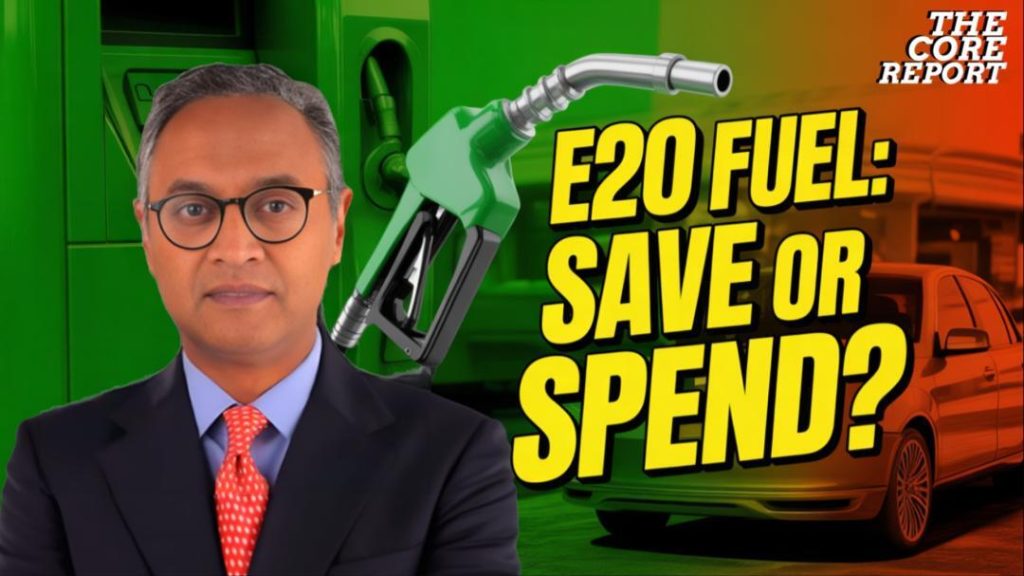
E20 Fuel in India: Benefits, Risks & What Vehicle Owners Must Know
In recent years, the Indian government has been actively promoting the use of E20, a blend of 20% ethanol and 80% gasoline, to reduce carbon emissions, boost energy security, and support farmers. The introduction of E20 fuel is expected to have a significant impact on the country’s transportation sector, and it is essential for vehicle owners to understand the benefits and risks associated with this new fuel blend.
Benefits of E20 Fuel
The Indian government has conducted several studies to evaluate the benefits of E20 fuel, and the results are impressive. According to the government’s data, the use of E20 fuel has been found to reduce carbon emissions by up to 40% compared to traditional gasoline. This is because ethanol, being a renewable fuel, produces fewer greenhouse gas emissions during its production and combustion compared to gasoline.
Moreover, E20 fuel has been found to improve the acceleration of vehicles, making it a more enjoyable driving experience. In a study conducted by the Indian Council of Medical Research, it was found that vehicles running on E20 fuel showed a significant increase in power output, with some vehicles experiencing a 10-15% increase in acceleration.
The use of E20 fuel also has economic benefits for farmers. The Indian government has been promoting the production of ethanol from sugarcane and other biomass sources, which has led to an increase in the income of farmers. The production of ethanol also requires less water and land compared to traditional crops, making it a more sustainable option.
Risks of E20 Fuel
While E20 fuel has several benefits, there are also some risks associated with its use. One of the major concerns is that older vehicles not designed to run on E20 fuel may experience engine wear, fuel system corrosion, and mileage loss. This is because E20 fuel has a different composition compared to traditional gasoline, and older vehicles may not be able to handle the blend.
In fact, a study conducted by the Automotive Research Association of India found that older vehicles may experience a 10-20% decrease in mileage and a 10-15% decrease in engine performance when running on E20 fuel. This is because the ethanol content in E20 fuel can damage the fuel injectors and fuel lines of older vehicles.
Another risk associated with E20 fuel is that it may not be compatible with all vehicle types. Some vehicles, such as those with fuel-injected engines, may require modifications to run on E20 fuel. Additionally, some vehicles may have fuel tanks that are not designed to handle the ethanol content in E20 fuel, which can lead to corrosion and damage.
What Vehicle Owners Must Know
As the Indian government plans to make E20 fuel mandatory for all new vehicles by 2025, it is essential for vehicle owners to take steps to prepare their vehicles for the transition. Here are some things that vehicle owners must know:
- Check your vehicle’s compatibility: Before switching to E20 fuel, check your vehicle’s compatibility with the blend. If your vehicle is not designed to run on E20 fuel, it may not be a good idea to switch.
- Check your vehicle’s maintenance: Make sure your vehicle is properly maintained before switching to E20 fuel. This includes checking the fuel injectors, fuel lines, and fuel tank for any damage or corrosion.
- Use the right fuel: If your vehicle is not designed to run on E20 fuel, it is essential to use the right fuel for your vehicle. This may include using premium gasoline or diesel fuel.
- Monitor your vehicle’s performance: After switching to E20 fuel, monitor your vehicle’s performance to ensure that it is running smoothly and efficiently. If you notice any issues, such as decreased mileage or engine performance, it may be a sign that your vehicle is not compatible with E20 fuel.
Conclusion
The introduction of E20 fuel in India is a significant step towards reducing carbon emissions and promoting energy security. While there are some risks associated with E20 fuel, vehicle owners can take steps to prepare their vehicles for the transition. By understanding the benefits and risks of E20 fuel, vehicle owners can make informed decisions about their fuel choices and help India achieve its sustainability goals.
Sources:






